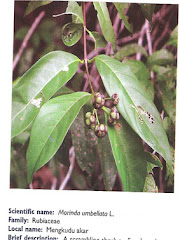The causes of deforestation (Grainger, 1992
A. Immediate causes- land use
1. shifting agriculture
I i. traditional long-rotation shifting cultivation
ii.short rotation shifting cultivation
iii. encroaching cultivation
iv. pasturalism
2. Permanent agriculture
i. permanent staple crop cultivation
ii. fish farming
iii. government sponsored resettlement schemes
iv. cattle ranching
v. tree crop and other cash crop plantation
3. Mining
4. Hydro-electric schemes
5. cultivation of illegal narcotics
B Underlying causes
1. Socio-economic mechanisms
i. population growth
ii. economic development
2.Physical factors
i.distribution of forest
ii.proximity of rivers
iii.proximinty of road
iv.distances from urban centres
v. topography
vi. soil fertility
3. Government policy
i. agriculture policies
ii.forestry policies
iii. other policies
The mechanisms of Human impacts on biodiversity
Human impact on biodiversity become global in two main ways
First by affecting a globally dynamic systems such as the atmosphere, world climate or sea level and
Second by occurring in a localized or patchwork fashion in enough places to lead a globally significant impact (Turner et al 1990)
Type of global environmental change (affecting biodiversity)
Systematic
Direct impact on globally functioning system
Example:
a. Industrial and land-use emisions of greenhouse gases.
b. B. Industrial and consumer emissions of ozone-depleting gases
c. C. land cover changes in albedo
Cumulative
Impact through world wide distribution of change
Example
a. Ground water pollution and depletion
b. species depleting / genetic alteration
Impact through magnitude of change (share of global resource)
Example:
a. deforestation
b. desertification
c. industrial pollutants
d. reduction of population of certain species
Exploitation of wild living resources
Wild resources ore harvested by rural people throughout the world for food, shelter, traditional medicines, dyes, olis, intoxicants, fuel, beverages, fibres, tools. Religious purposes and cash income
Such harvests are motivated by cultural traditional, survival needs and to greater extent today for cash income to supplement earnings from other resources such as the people get the meat of Rusa, Kijang, Pelanduk from the forest
أَلَمْ تَرَ أَنَّ اللَّهَ يُسَبِّحُ لَهُ مَنْ فِي السَّمَاوَاتِ وَالأرْضِ وَالطَّيْرُ صَافَّاتٍ كُلٌّ قَدْ عَلِمَ صَلاتَهُ وَتَسْبِيحَهُ وَاللَّهُ عَلِيمٌ بِمَا يَفْعَلُونَ Tidakkah kamu tahu bahwasanya Allah: kepada-Nya bertasbih apa yang di langit dan di bumi dan (juga) burung dengan mengembangkan sayapnya. Masing-masing telah mengetahui (cara) solat dan tasbihnya, dan Allah Amat Mengetahui apa yang mereka kerjakan. an-Nur:41
Tazkirah
Sami Yusuf_try not to cry
mu'allim Muhammad Rasulullah Sallallahu alaihi waSalam
ummi_mak_mother_ibu_Sami Yusuf
zikir Tok Guru Nik Abdul Aziz Nik Mat Mu'allimul Mursyidi
syeikh masyari afasi
ruang rindu
song
Arisu Rozah
Usia 40

Mudah mudahan diluaskan rezeki anugerah Allah
usia 40 tahun

UPM

Kuatan Pahe Darul Makmur
pemakaian serban semsa menunaikan solat_InsyaAllah ada sawaaban anugerah Allah
Rempuh halangan

Abah_menyokong kuat oengajian Ijazah UPM

usia 39 tahun

usia 23 tahun_UPM
An_Namiru

Ijazah Pengurusan Hutan UPM

General Lumber_Nik Mahmud Nik Hasan

Chengal

Tauliah

Semasa tugas dgn general lumber

PALAPES UPM

UPM

Rumah yang lawa

Muhammad_Abdullah CD
semasa bermukim di Kuatan Pahe Darul Makmur
Ijazah

air terjun

Borneo land

GREEN PEACE
GREEN PEACE
Kelang

Ahlul Bayti_ Sayid Alawi Al Maliki

Asadu_ Tenang serta Berani

atTiflatul Falasthiniin

Sayid Muhammad Ahlul Bayt keturunan Rasulullah

AnNamiru_SAFARI_Kembara

AnNamiru_resting

Hamas

sabaha anNamiru fil nahri

Namir sedang membersih

Tok Guru Mualimul_Mursyid

An_Namiru
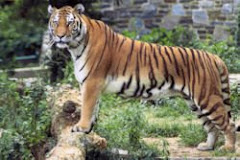.jpg)
Namir_istirehat
.jpg)
SaaRa AnNamiru fil_Midan
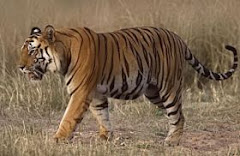.jpg)
Renungan Sang Harimau_Sabaha AnNamiru
.jpg)
Syaraba AnNamiru Ma_A
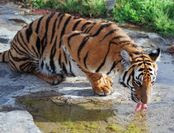.jpg)
AnNamiru_Riadhah
.jpg)
AnNamiru_Riadhah
.jpg)
AnNimru ma_A waladuha
Namir fil_Ghabi (sebut Robi...
Namir

AdDubbu_Beruang di hutan

Amu Syahidan Wa La Tuba lil_A'duwwi

AsSyahid

Namir

Tangkas
najwa dan irah

sungai

najwa

najwa

Kaabatul musyarrafah

unta

Jabal Rahmah

masjid nabawi

masjid quba

dr.eg

najwa dan hadhirah

along[macho]
![along[macho]](https://blogger.googleusercontent.com/img/b/R29vZ2xl/AVvXsEjuMi7D33CmR0_KXrCW2XigfLcUuQurcvtqOS139ncCwEzCyB-jUopk7QK7anADIenJEm2S0N6gAY1ubnACYXewgiAsI3rBjnLTawM39alLL-rEopOoVqn0w5WpLhPJH3hrXNtchEhgtyaI/s240/P7150023.JPG)
harissa dan hadhirah

adik beradik
Tongkat Ali

Tongkat Ali
herba kacip Fatimah
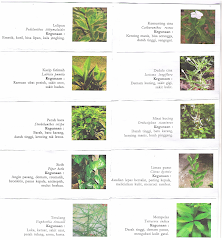
herba Kacip Fatimah
hempedu beruang
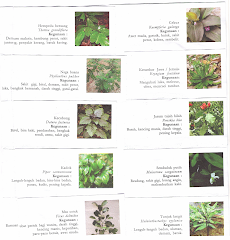
hempedu beruang
hempedu bumi

hempedu bumi
herba misai kucing

herba misai kucing
herba tongkat Ali
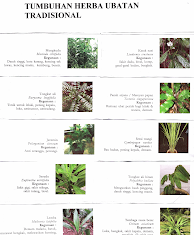.png)
Tongkat Ali
Ulama'

Ulama'
kapal terbang milik kerajaan negara ini yang dipakai pemimpin negara

kapal terbang
Adakah Insan ini Syahid

Syahid
Tok Ayah Haji Ismail

Saifuddin bersama Zakaria

Dinner....
Sukacita Kedatangan Tetamu
Pengikut
Kalimah Yang Baik

Ubi Jaga

Ubi Jaga
Arkib Blog
Burung Lang Rajawali

Chinese Sparrowhawk
Kelicap Mayang Kelapa
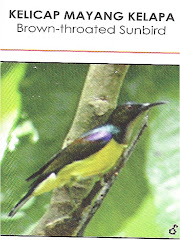
Brown-Throated Sunbird
Kopiah

Pokok Damar Minyak

Kacip Fatimah
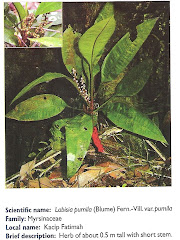
Mengkudu Akar
